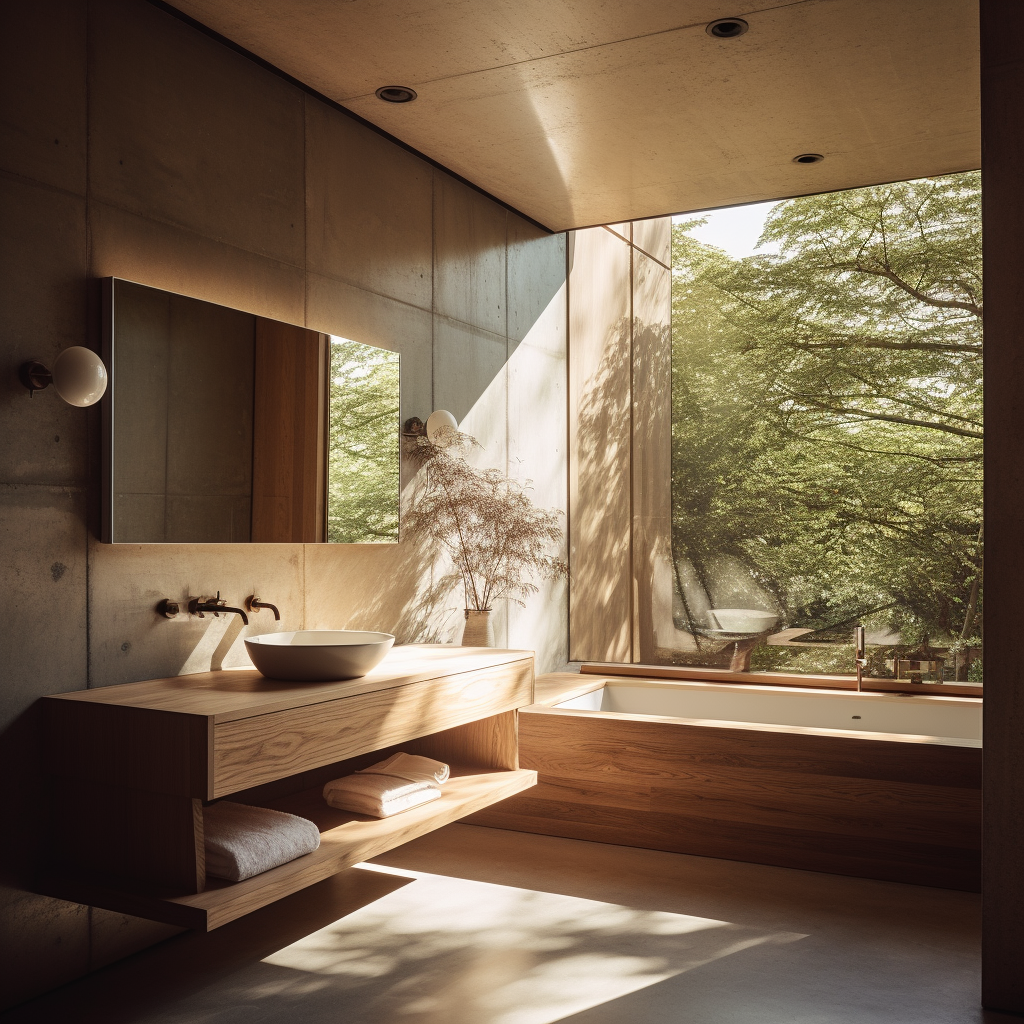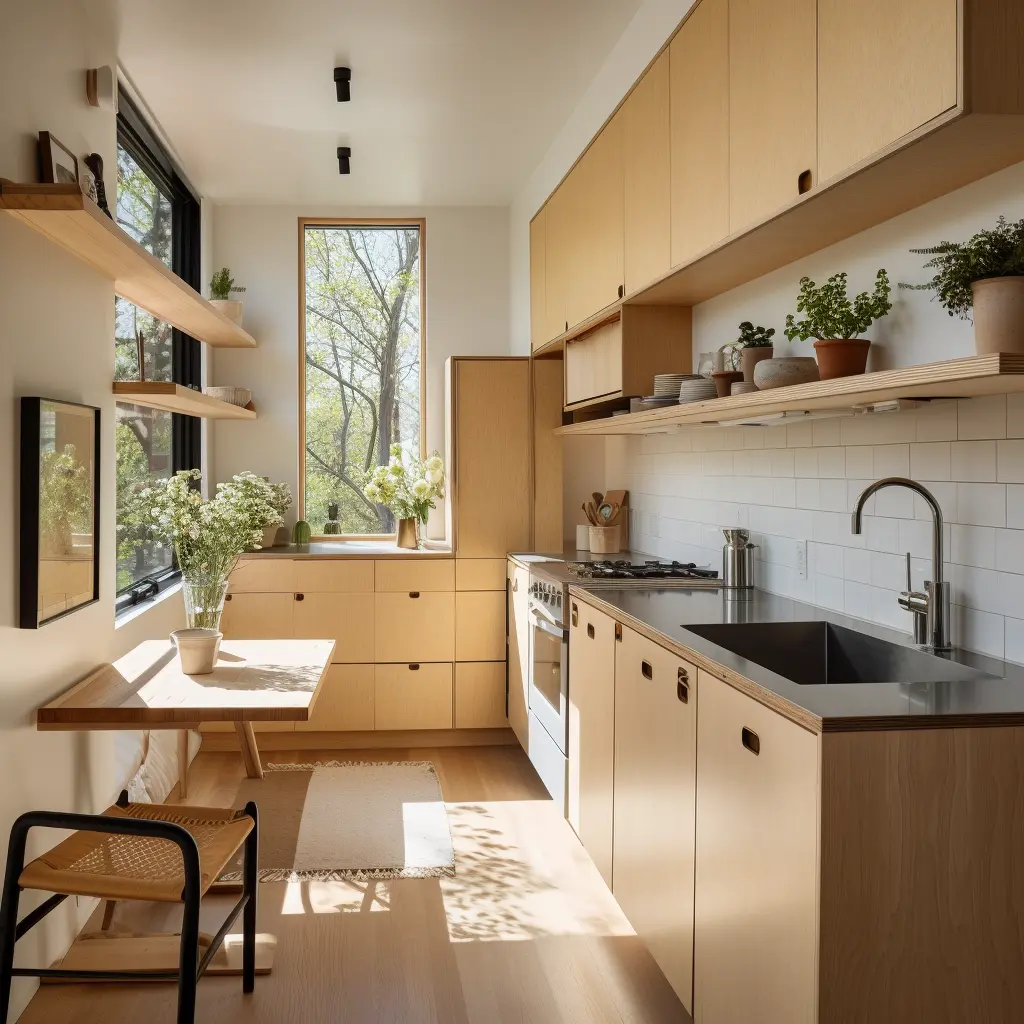Bathroom Reno Costs: 10 Things That Drain Your Budget

co-founder
- Location and Labor Costs
- Scope of Work
- Size of Bathroom
- Layout Changes
- Plumbing and Electrical Work
- Bathroom Remodel Permits
- Bathroom Remodel Finishes
- Working With Contractors vs. DIY
- Timeline and Home Disruption
- Return on Investment
- Key Takeaways
Remodeling a bathroom can be a major home improvement project that requires careful planning and budgeting. There are several key variables that impact the total cost of a bathroom remodel. Being aware of these factors can help homeowners develop a realistic budget and set expectations for the project scope and timeline.
Location and Labor Costs

The location of the home is one of the biggest factors in bathroom remodel costs. Labor costs for contractors and plumbers can vary dramatically between different regions of the country. According to the latest Remodeling Cost vs. Value Report from Remodeling magazine, the national average cost for a midrange bathroom remodel is $19,134. However, costs in the Pacific region average around $26,214 compared to just $15,897 in the South.
High-cost metropolitan areas like San Francisco bathroom remodels and New York City bathroom remodels will be on the higher end of the spectrum due to higher wages and labor expenses. Rural areas and small towns will generally be much more affordable. Homeowners should research average contractor rates in their local area when creating a bathroom remodel budget.
Scope of Work
The scope of work for the bathroom remodel greatly impacts the total cost. A project can range from a simple facelift like painting walls and installing new fixtures to a complete gut renovation. According to HomeAdvisor, here are average costs for various bathroom remodeling projects:
- Bathtub and shower replacement: $3,500 - $7,000
- Complete bathroom remodel: $12,000 - $35,000
- Toilet replacement: $320 - $670
- Bathroom sink and vanity replacement: $600 - $2,500
- Tile shower surround installation: $1,600 - $3,000
- Luxury bathroom remodel: $25,000 - $50,000+
Creating an itemized list of every improvement and upgrade included in the remodel will help clarify the scope. Eliminating any non-essential purchases can help keep costs from spiraling out of control.
Size of Bathroom
Larger bathrooms require more materials and labor which equals higher total project costs. For example, tiling a large two-person walk-in shower costs more than a standard tub surround. When estimating costs, the size of the bathroom itself and features like large showers should be taken into consideration.
According to Fixr.com, the average costs for remodeling bathrooms of different sizes are:
- Half bath (toilet and sink): $4,000 - $7,000
- Small bathroom (toilet, sink, shower stall): $7,500 - $10,000
- Standard bathroom (toilet, sink, tub): $10,000 - $20,000
- Large bathroom (double vanity, toilet, soaking tub, large shower): $20,000 - $35,000
- Luxury master bathroom (spa features, custom tile, high-end fixtures): $35,000 - $50,000+
Layout Changes
Changing the layout of a bathroom can have major cost ramifications. Even moving the location of fixtures like toilets and plumbing supply lines can add thousands of dollars in expenses. Adding square footage to expand a bathroom or create a more open, spa-like environment requires structural changes that boost costs exponentially.
Labor and material costs for common layout changes include:
- Moving toilet or plumbing lines: $1,000 - $4,000
- Removing wall between bathroom & bedroom: $5,000 - $8,000
- Expanding bathroom square footage: $15,000 - $35,000
Keeping the existing layout as much as possible or limiting changes to removing non-load bearing walls can help contain project costs.
Plumbing and Electrical Work
As one of the most complex home renovation projects, a bathroom remodel requires professional electrical and plumbing work to update fixtures, lighting, water supply lines, and drain pipes. Finding issues like faulty wiring or water damage once the remodel begins can result in expensive repairs that quickly inflate the budget.
According to HomeAdvisor, average costs for common bathroom plumbing and electrical jobs are:
- Install new plumbing lines and fixtures: $2,000 - $4,000
- Install bathroom exhaust fan: $390 - $970
- Install recessed lighting: $485 - $960 per fixture
- Install heated tile floors: $4,000 - $8,000
- Install multi-head luxury shower: $3,000 - $7,000
- Install smart home tech like touchscreen controls: $2,000 - $4,000
Getting quotes from plumbers and electricians before finalizing budget numbers is recommended.
Bathroom Remodel Permits
Homeowners should not overlook permitting costs when estimating a bathroom remodel budget. Permits are required for significant electrical and plumbing work to meet local and state building codes. The national average cost for a residential bathroom remodel permit is $800 but can vary widely by location. Complex high-budget remodels may require multiple permits that each cost over $1,000.
Some factors that influence permitting costs include:
- Local permitting fees based on projected value of improvements
- Amount of electrical and plumbing work being performed
- Necessity of adding a bathroom exhaust vent
- Whether structural changes are being made
Completing work without proper permits can lead to fines, delays, and in some cases even tear-out and rebuilding if the bathroom fails inspection.
Bathroom Remodel Finishes
Design finishes like flooring, countertops, and lighting fixtures impact the style and luxury level of a bathroom remodel. High-end finishes will increase total costs, while more budget-friendly options can help contain the budget. Here are estimated price ranges for common bathroom design finishes:
Flooring:
- Ceramic, porcelain, or glass tile: $3 - $20 per sq. ft. installed
- Natural stone tile: $15 - $50 per sq. ft. installed
- Luxury vinyl plank: $3 - $8 per sq. ft. installed
- Hardwood: $4 - $15 per sq. ft. installed
Countertops:
- Laminate: $20 - $60 per linear ft. installed
- Quartz: $70 - $140 per linear ft. installed
- Granite: $60 - $155 per linear ft. installed
- Marble: $75 - $250 per linear ft. installed
Lighting Fixtures:
- Bathroom vanity lights: $50 - $500+
- Showerhead and accent lighting: $100 - $2,000+
- Medicine cabinets: $100 - $1,000+
- Mirror lights: $75 - $500+
Plumbing Fixtures:
- Toilet: $100 - $1,500+
- Bathroom sink/faucet: $100 - $600+
- Tub: $200 - $5,000+
- Custom shower system: $1,000 - $10,000+
Choosing midrange or entry-level finishes can significantly reduce the total remodel investment. Replacing lighting and plumbing fixtures yields a big visual impact for a smaller price than custom cabinetry or stone finishes.
Working With Contractors vs. DIY
Who will complete the work is a major factor in overall bathroom remodel costs. Hiring professional contractors nearby costs more but can save homeowners headaches and mistakes. On average, contractors charge around $65 per hour though prices can range from $50 to $100 per hour based on experience level and skill.
Typical contractor rates for common bathroom projects:
- Tile installation: $45/hour
- Rough carpentry: $70/hour
- Finish carpentry for trims and cabinets: $80/hour
- General demolition: $75/hour
General contractors charge 20-25% on top of project costs to oversee the remodel and subcontractors. Architects can charge $50 to $200 per hour for design work.
Doing parts or all of the work as a DIY homeowner cuts costs but adds risks:
- DIY savings for a full remodel: 20% - 40% typically
- DIY takes much longer, potentially interfering with home use
- Mistakes in plumbing or electrical work can be costly to fix
- Lack of experience with tools and techniques leads to imperfect results
Using a general contractor with an itemized contract containing each project phase is recommended for most homeowners. However DIY can save substantially for smaller projects like painting and installing new fixtures.
Timeline and Home Disruption
Bathroom remodels take time that must be accounted for in the planning process. The timeline depends on factors like:
- Scope of work
- Level of DIY vs. hiring contractors
- Unexpected repairs or issues once work begins
- Ordering and delivery time for materials like tile and cabinets
According to HomeAdvisor, the typical bathroom remodel timeline is:
- Small remodel like new tub or vanity: 1-3 days
- Standard remodel with new fixtures, lights, tile: 2-4 weeks
- Complete remodel with layout changes: 8-12 weeks or longer
Homeowners can expect at least some disruption to normal home life when undertaking a bathroom renovation. Planning to have at least one other usable bathroom during the remodel helps reduce day-to-day inconveniences. Staying flexible with the timeline also allows issues to be resolved without placing deadlines over quality of work.
Return on Investment
While clearly an expensive project, a bathroom remodel can provide good return on investment (ROI) when selling a home. According to the 2020 Remodeling Impact Report from the National Association of Realtors, upscale bathroom remodels recovered about 64% of their cost at resale.
The report broke down ROI on common types of bathroom remodels:
- Minor remodel with midrange materials and new tub/shower: 90% ROI
- Moderate remodel with some layout changes: 83% ROI
- Upscale master bath overhaul: 64% ROI
Other benefits influencing ROI that are harder to quantify include increased home enjoyment, property value, and functionality. Return depends heavily on keeping project costs in check and not overimproving for the neighborhood.
Key Takeaways
Estimating bathroom remodel costs requires careful evaluation of all the variables at play in order to develop an accurate budget. From the project scope to choice of finishes to the decision of DIY versus hiring contractors, costs add up quickly. Homeowners who do their homework understanding local labor rates, permitting needs, and reasonable timelines for project phases will avoid budget pitfalls down the road.
While bathrooms are one of the most expensive rooms to renovate, they also provide solid resale value. Controlling costs without cutting corners leads to the highest long-term ROI. With good planning and clear expectations going in, a bathroom remodel can be a satisfying home improvement project that enhances quality of life and increases a home's value for years to come.

Renovate with EcoHome
EcoHome empowers homeowners to confidently build healthy and comfortable homes for a fair price.
Sign UpLocations View All →
NY
- Albany
- Binghamton
- Buffalo
- Esopus
- Freeport
- Hempstead
- Highland
- Kingston
- Long Beach
- Marlboro
- Mount Vernon
- New Paltz
- New Rochelle
- New York City
- Niagara Falls
- North Tonawanda
- Olivebridge
- Plattekill
- Rochester
- Rome
- Saugerties
- Schenectady
- Shandaken
- Syracuse
- Troy
- Utica
- Valley Stream
- Wallkill
- Woodstock
- Yonkers
NJ
- Bayonne
- Brick
- Camden
- Cherry Hill
- Clifton
- East Orange
- Edison
- Elizabeth
- Jersey City
- Lakewood
- Middletown
- Newark
- Old Bridge
- Passaic
- Paterson
- Toms River
- Trenton
- Union City
- Woodbridge
CT
PA
- Allentown
- Altoona
- Bethel Park
- Bethlehem
- Chester
- Easton
- Harrisburg
- Hazleton
- Lancaster
- Lebanon
- Monroeville
- Philadelphia
- Pittsburgh
- Reading
- Scranton
- Wayne
- Wilkes Barre
MD
- Abingdon
- Baltimore
- Bethesda
- Bowie
- Columbia
- Dundalk
- Ellicott City
- Frederick
- Gaithersburg
- Germantown
- Glen Burnie
- Potomac
- Rockville
- Severn
- Silver Spring
- Towson
- Waldorf



